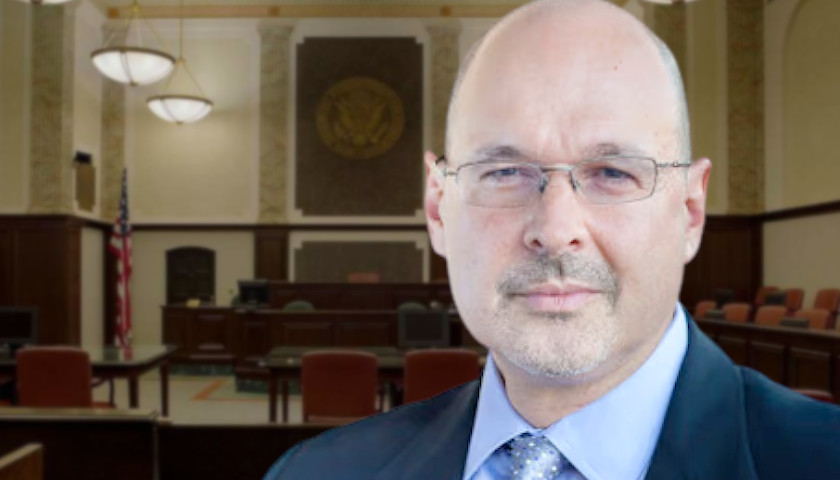A notice of appeal was filed with the Ninth Circuit Court of Appeals Wednesday by the attorneys for Trump-endorsed gubernatorial candidate Kari Lake and Trump-endorsed State Representative Mark Finchem (R-Oro Valley), who is running for Arizona Secretary of State. Their lawsuit seeks to end the use of electronic voting machines in Arizona due to the devices’ security vulnerabilities.
The move comes as Obama-appointed trial court judge U.S. District Judge John Tuchi dismissed the case. Lake told The Arizona Sun Times they are already prepared for another negative decision. “If the judge will not allow us to get rid of the electronic voting machines prior to the election we must do a hand count,” she said. “We’ve seen wild swings in results between hand counts and electronic voting machine counts. In some precincts and counties in Georgia during the primaries the third place winner on the electronic voting machine tally was actually the first place winner in a hand count. This is our sacred vote and we must make sure it is being counted fairly and with full transparency.”
In his decision, the judge wrote that “speculative allegations that voting machines may be hackable are insufficient to establish an injury in fact,” it was too close to the election to file, and the lawsuit should have been filed in state court, not federal court.
Lake and Finchem argued in their pleadings that they did cite an injury in fact, stating “nullification of Plaintiffs’ fundamental rights as candidates and as voters to vote and have their votes properly counted without being diluted or debased by other fictitious or manipulated votes.” They cited a 2001 case, Bonas v. Town of N. Smithfield, which held, “[O]ne thing is clear: total and complete disenfranchisement of the electorate as a whole is patently and fundamentally unfair (and, hence, amenable to rectification in a federal court).”
The pair then stated that the complaint was not untimely. “These arguments essentially assert that if the state can get away with unconstitutional election procedures long enough, its unconstitutional procedures become immune from legal challenge,” they said in one of the pleadings. “That is not the law.”
They argued that venue in federal court instead of state court was proper, they contend, because under “42 U.S.C. § 1983, a citizen may bring an action under that statute to recover damages sustained as a result of the deprivation of federal rights by a person acting under color of law.”
The Arizona Republican Party filed an amicus curiae brief in the lawsuit in June, which opened by stating that elections “are less secure than your Amazon account.”
The Maricopa County Supervisors, represented by Maricopa County Attorney Rachel Mitchell, who ran for office as a conservative Republican so it surprised many, filed a motion for sanctions against Lake, Finchem, and their attorneys — which included Alan Dershowitz — on July 18, claiming the suit was “frivolous.” The judge did not grant the sanctions.
Concern over the use of electronic voting machines to tabulate ballots has increased in Arizona this year, with a grassroots movement led by Save My Freedom and Act for America starting this month to pressure local election officials to ban the use for the midterm election. There are 115 counties around the country that have decided to stop using them for this election.
A lawsuit in Alabama to halt the use of electronic voting machines was thrown out this week. Another lawsuit is proceeding in Liberty County, Texas, and one in New Hampshire to stop their use. In Pennsylvania, activists collected signatures to get a referendum on the ballot in multiple counties to ban them, but were unable to collect enough signatures by the deadline this month. Concerned citizens are filing public records requests across the nation for information related to voting machines, including many with the Maricopa County Elections Department (MCED). By the beginning of August, MCED had received 498 public records requests about them, 130 more than all of last year.
– – –
Rachel Alexander is a reporter at The Arizona Sun Times and The Star News Network. Follow Rachel on Twitter. Email tips to [email protected].
Photo “John Tuchi” by Federalist Society.





